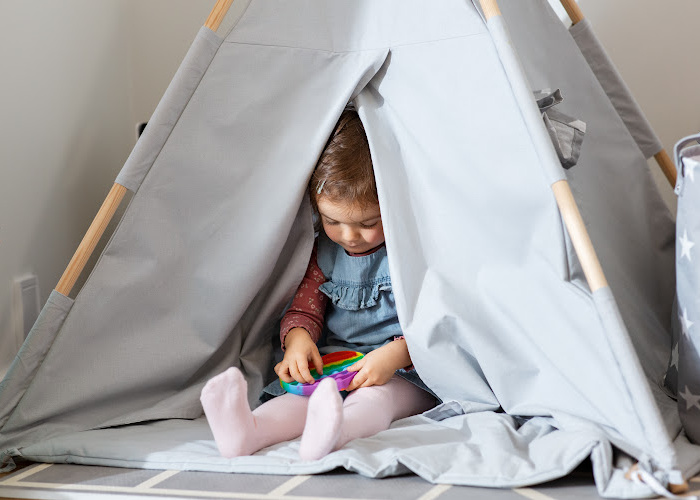It's crucial to know that students with autism and ADHD need special study strategies. Autism…

Do Autistic People Love Easily? Insights into Autism and Love
Love knows no bounds, and this holds true for individuals on the autism spectrum as well.
Despite common misconceptions, autistic people are more than capable of experiencing love, forming connections, and nurturing successful relationships.
As we explore the intricacies of autism and love, we will uncover the unique challenges and triumphs these individuals face in their quest for romance and companionship.
A common question that arises is, “do people with autism get married?” The answer is yes, as many have successfully navigated the complexities of marriage and long-term partnerships.

Autism and Love: The Reality
While the autistic population predominantly displays mild characteristics of autism spectrum disorders, they are fully capable of feeling love and forming meaningful relationships.
Researchers expect a slight increase in autism diagnosis detections, further emphasizing the importance of understanding the emotional capabilities of autistic individuals.
Recognizing that autistic people, including those with an autism diagnosis, experience love differently than a neurotypical person is key, yet they retain a strong capacity for forming emotional connections and desiring intimacy.
Autistic individuals may encounter difficulty comprehending social cues and navigating the intricacies of romantic relationships, but their love is no less valid or meaningful.
They often demonstrate intense focus on their romantic partner, expressing love in their own unique manner.
By understanding and honoring these differences, fulfilling relationships can be built and cherished.

Autism Spectrum Disorder: Impact on Relationships
Navigating relationships with an autistic partner requires extra effort in communication, understanding sensory needs, and addressing executive function tasks.
Both you and your partner in a relationship need to be aware of your own mental health issues and their potential impact on the relationship.
Autistic individuals often struggle with interpreting non-verbal communication. This can include things like body language, facial expressions and tone of voice.
Clear and consistent communication is necessary in relationships with partners on the autism spectrum, as it aids in bridging the communication gap between the autistic and neurotypical individuals.
Considering your partner’s perspective can also help in fostering better understanding and empathy.
Addressing areas of need is of paramount importance for both partners in a neurodiverse relationship. Executive function involves a range of tasks including:
- planning
- organizing
- prioritizing
- time management
- emotional regulation
- impulse control
These skills are integral for goal-oriented behavior and complex thinking.

People on the autism spectrum may have difficulty initiating and completing tasks, so understanding each other’s perspective is vital, including the partner’s perspective on executive function tasks.
With a deeper understanding of autism spectrum disorders, couples can better support each other in their relationship.
Autistic individuals often face unique challenges in marriage, such as interpreting facial expressions and other social cues, which can impact their relationships.
The most significant effect of ASD on a marriage is communication difficulties, which can create a communication gap between partners.
However, by thoroughly addressing areas of need and fostering open communication, couples can navigate these challenges and build strong, long-lasting relationships.
Differentiating between the challenges related to autism spectrum disorders and those inherent to any marriage is important.
Unintended harm, neglect, insensitivity, or abusive behaviors can still cause harm to the relationship in a neurodiverse marriage.
Acknowledging the unique challenges of autism spectrum disorder allows couples to cooperatively establish a supportive, understanding, and nurturing environment for their relationship.

Success Stories: Autistic Couples and Their Journeys
Inspiring stories of autistic couples showcase the power of understanding and support in overcoming the challenges of neurodiverse relationships.
Kaelynn Partlow, a therapist, dog trainer, and star of the hit Netflix series ‘Love on the Spectrum,’ is a prime example of an autistic individual defying expectations and making a meaningful impact in the world.
Notable neurodiverse couples like Kate and Clark, who have been married for 9 years and Clark was officially diagnosed with autism in 2020, serve as beacons of hope and inspiration for others facing similar challenges.
Such success stories highlight the need for broadening understanding, gaining perspective, and utilizing therapy or counseling in building strong, fulfilling relationships.
Effective communication strategies tailored to individual needs are key to managing the unique challenges faced by autistic couples.
Employing various strategies like experimenting with new activities together, engaging in transparent communication, and recognizing and accommodating each other’s needs, allow autistic couples to build healthy and rewarding relationships.

Strategies for Building a Strong Neurodiverse Marriage
Creating a resilient neurodiverse marriage involves:
- Seeking counseling and support specifically designed for neurodiverse couples managing autism within their marriage
- Both partners need to have a clear understanding of each other’s capabilities, issues, and cognitive profiles
- Recognizing the unique communication styles of individuals with ASD is important, as they often communicate in a transactional manner, taking things at face value without delving into the underlying implications.
Fostering a resilient neurodiverse marriage requires couples to:
- Acknowledge, respect, and communicate each other’s methods of de-stressing
- Reset expectations to manage a neurodiverse marriage
- Examine individual abilities and improve communication skills
- Address past hurts
- Establish open communication to lay the groundwork for a strong and supportive relationship.
Comprehending and managing sensory needs is another key aspect of creating a resilient neurodiverse marriage.
Gaining an understanding of ASD helps differentiate between challenges related to ASD and those inherent to any marriage, preventing unintended harm or neglect.
By addressing these unique challenges, couples can create a supportive and nurturing environment for their relationship.
Seeking guidance from therapists or resources specifically for neurodiverse couples can prove immensely beneficial in navigating the unique challenges of a neurodiverse marriage.
By investing time and effort into understanding each other’s needs and nurturing open communication, neurodiverse couples can build strong, lasting marriages.

Parenthood and Autism: Preparing for a Family
Neurodiverse couples planning to have children should consider the potential ramifications of autism on having a baby, the genetic elements contributing to autism in their offspring, and strategies for preparing themselves for parenthood.
There is an increased likelihood of having a baby with autism, and couples should be aware of the genetic factors that may contribute to autism in their offspring, such as rare mutations inherited from unaffected parents, polygenic risk, and variations in over 800 genes.
In preparing for parenthood, neurodiverse couples can utilize various coping strategies to ensure both partners are supported and ready for the challenges parenthood brings. These strategies include:
- Challenging negative thoughts and narratives
- Fostering humor
- Prioritizing their marriage as much as their parenting
- Spending time together without their child
- Considering relationship therapy or coaching
- Implementing emotional support strategies
- Allowing for task shifting
- Discussing issues
- Communicating openly
Utilizing these strategies allows couples to navigate the unique challenges of parenthood while embracing their neurodiversity.
Planning and preparing for parenthood can be a rewarding and bonding experience for neurodiverse couples, strengthening their relationship and setting the stage for a loving and supportive family environment.

Resources for Neurodiverse Couples
A variety of resources are available to aid neurodiverse couples in fortifying their relationships and navigating the unique challenges they may encounter.
Some of these resources include:
- The Asperger/Autism Network, which offers relevant information to support neurodiverse couples
- A comprehensive list of resources for those seeking guidance and assistance
- Online support groups, such as Neurodiverse Love, which offer a platform for neurodiverse couples to connect and share their experiences, fostering a sense of community and understanding.
Professional services that specialize in counseling for neurodiverse couples, such as Neurodiverse Couples Counseling and The Neurodiverse Couple, provide tailored support for couples seeking guidance and strategies for navigating their unique challenges.
Utilizing these resources, support groups, and professional services provides neurodiverse couples with the tools and guidance they need to establish resilient, enduring relationships that celebrate their neurodiversity.
Final Thoughts
In conclusion, autistic individuals are fully capable of experiencing love, forming meaningful connections, and nurturing successful relationships.
By understanding the unique challenges and triumphs these individuals face, and by embracing the support of resources, support groups, and professional services tailored to neurodiverse couples, we can celebrate the power of love and connection in all its diverse forms.

Frequently Asked Questions
Below are some common questions and answers about autism and relationships, providing insights into the experiences of autistic individuals in various aspects of life.
Is it hard to be in a relationship with someone with autism?
Being in a relationship with an autistic partner can be difficult due to the difficulty in understanding and recognizing subtle social cues. Marriage can be one of the hardest things to do, and this is especially true for those in relationships with someone on the autism spectrum.
Can people with autism have children?
Yes, people with autism can have children. There is a chance of passing on certain genetic conditions associated with autism, but research suggests that couples in which one or both partners are on the autism spectrum generally have positive experiences when having children.
Can a person with autism have a normal life?
With the right support and resources, people with autism can lead a fulfilling and normal life on their own terms. They are able to date, make friends, attend college, get married, become parents, and have successful careers.
What challenges might autistic partners face in relationships?
Autistic partners may have difficulty with communication, understanding their own and their partner’s sensory needs, and tackling executive function tasks. Consistent and open communication is essential in relationships with partners on the autism spectrum.
How can neurodiverse couples prepare for parenthood?
Neurodiverse couples can prepare for parenthood by challenging negative thoughts, fostering humor, prioritizing their marriage, spending time together without their child, considering relationship therapy, implementing emotional support strategies, allowing for task shifting, discussing issues, and communicating openly.



This Post Has 0 Comments